In the world of sports, few athletes have showcased excellence across such a diverse range of disciplines as Herschel Walker.
His unmatched versatility, speed, power, and determination carved out a legendary career on the gridiron, track, and beyond.
Herschel Walker’s numerous accolades and enduring athletic prowess at 60 years old cement his legacy as one of the greatest all-around competitors America has ever produced.
Herschel Walker first captured the national spotlight in the early 1980s as a running back for the University of Georgia Bulldogs.
He promptly smashed school rushing records and led the Bulldogs to the 1980 National Championship as a true freshman.
For the next three seasons, Herschel Walker earned consensus All-American honors, set numerous NCAA records, and won the coveted Heisman Trophy in 1982.
His extraordinary college career landed him in the College Football Hall of Fame as arguably the greatest college player ever.
After early domination at Georgia, Herschel Walker brought his electrifying running talents to the professional ranks. He played in both the USFL and NFL for teams like the New Jersey Generals, Dallas Cowboys, and Minnesota Vikings.
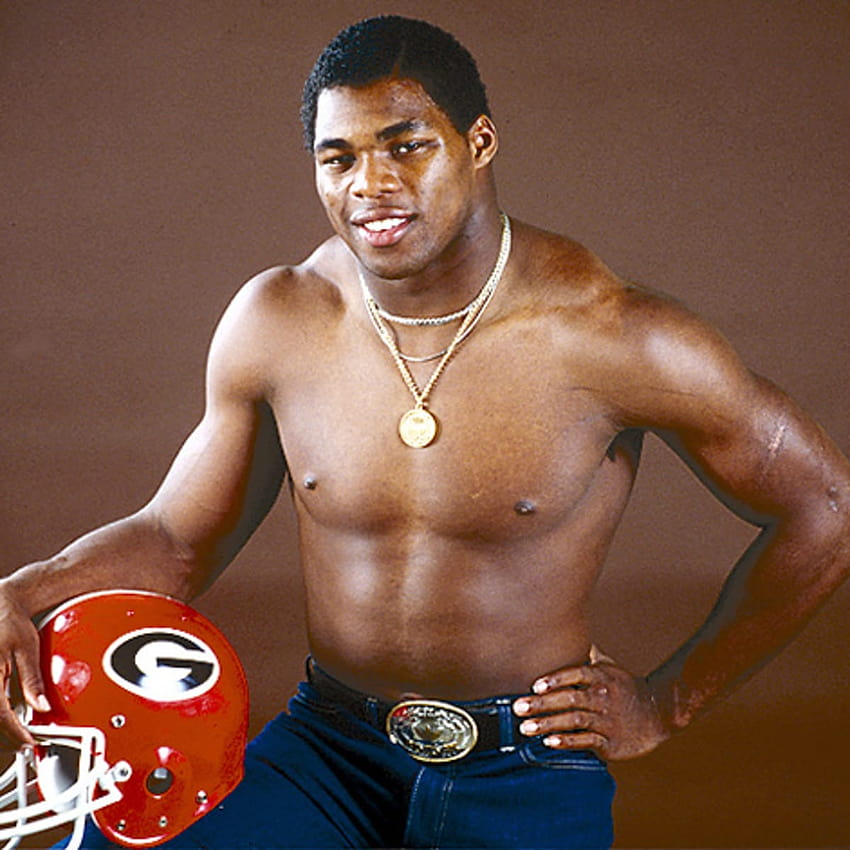
In 1986 as a member of the Cowboys, Herschel Walker logged an astonishing 2,411 rushing yards in just 16 games – a single-season record that still stands today.
His NFL career consisted of monster all-purpose yardage totals, two Pro Bowl selections, and five straight 1,000-yard rushing seasons. Beyond football, Walker exhibited world-class speed as an Olympic track & field athlete.
He nearly qualified for the U.S. Olympic Team in the 100 meters and set a world record time of 6.12 seconds in the 55-meter dash.
In 1992, Herschel Walker represented America as a member of the bobsled team at the Albertville Winter Olympics. The diverse range of Herschel Walker’s athletic pursuits also includes mixed martial arts and ballet.
He went undefeated in 12 professional MMA bouts from 2010-2011, earning two TKO victories. On the dance stage, Herschel Walker spent time training with the Fort Worth Ballet to hone balance and body control.
This array of talents showcases the singular athletic gifts that Herschel Walker leveraged across so many sports.
Today, Herschel Walker remains active in business as CEO of Renaissance Man Food Services and HW Enterprises, which provide quality food products for clients like the U.S. military.
He also serves on the President’s Council on Sports, Fitness, and Nutrition to advocate for health and wellness. The council role allows Herschel Walker to inspire Americans of all ages to pursue fitness.
Herschel Walker has also become a vocal supporter of mental health (1) initiatives in light of his diagnosis of dissociative identity disorder.
He frequently delivers public talks sharing his experiences overcoming childhood trauma and embracing treatment.
By promoting discussion around mental illness, Herschel Walker aims to empower those struggling and remove stigmas preventing people from seeking help.
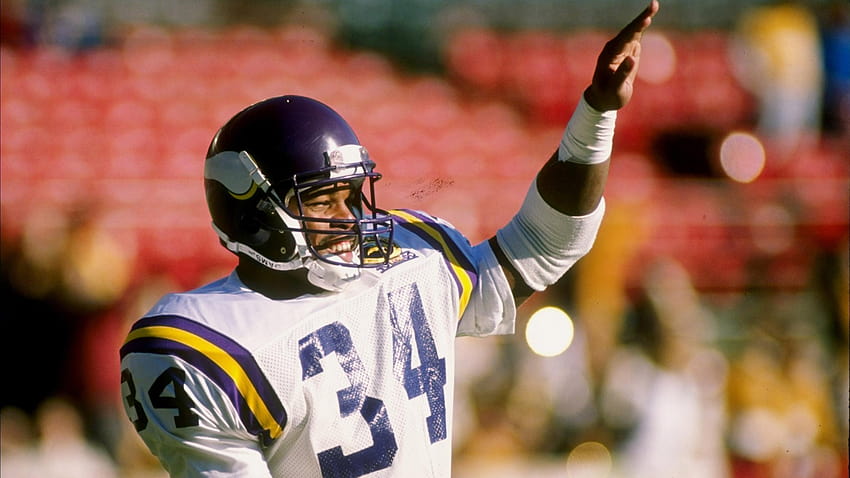
As he advances into his 60s, the legendary Herschel Walker continues defying time through his extraordinary athletic fitness.
Despite not lifting weights, he maintains a sculpted physique through intense bodyweight training routines.
Herschel Walker remains a consummate competitor, attacking all pursuits in life with the same tireless work ethic that made him a generational talent.
His sustained excellence across decades solidifies Herschel Walker as one of America’s most accomplished and influential athletes.
Herschel Diet and Nutrition Plan
At 60 years old, NFL legend Herschel Walker maintains a remarkably fit, muscular physique despite an extremely unconventional dietary approach that contrasts typical sports nutrition guidance.
Herschel Walker consumes just one meal per day, eating only after 8 pm each night. This form of intermittent fasting or OMAD (one meal a day) diet involves prolonged periods without food intake.
According to Herschel Walker, his sole daily meal consists primarily of vegetables, bread, fruits, legumes, and soup. He relies heavily on carbs and eschews most protein sources aside from occasionally eating chicken.
Herschel Walker excludes all other meats and follows a mostly vegetarian regimen. To prepare his evening meal, Herschel Walker uses a crockpot to make large batches of vegetable soup.
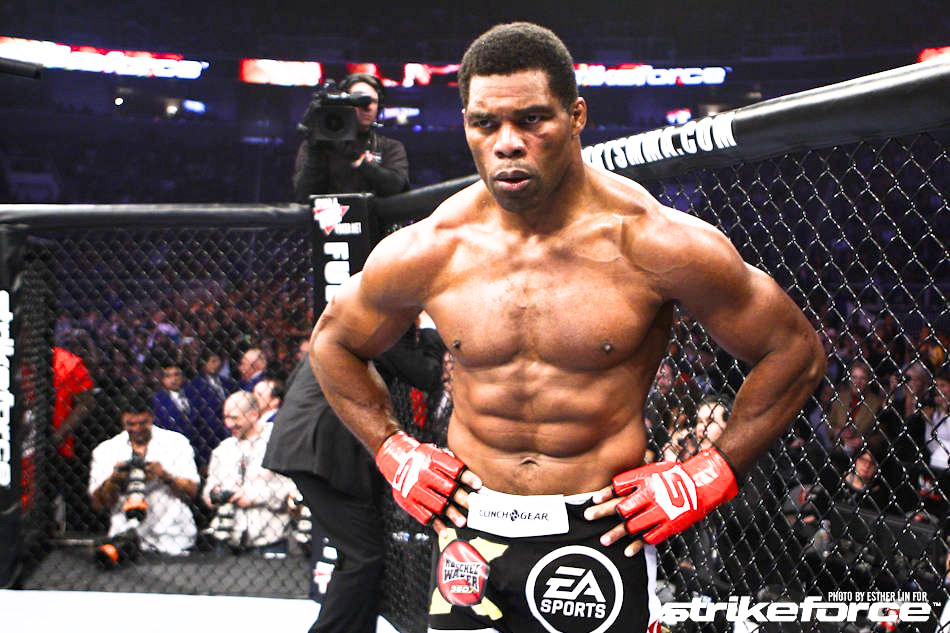
This allows him to have nutritious food ready to eat at the end of each day. Throughout the earlier daylight hours, he abstains from any solid foods. His intake is limited to water and juice up until his nightly meal.
This restrictive approach is quite extreme compared to the frequent smaller meals recommended for athletes. The fasting period between Herschel Walker’s single meal each day can extend 18-20 hours depending on when he finishes eating.
This forces his body to tap into fat stores and muscle tissue to fuel basic functions and training. Such severe calorie restriction and avoidance of protein goes against standard dietary guidelines for professional athletes.
The minimal protein makes it difficult to maintain and rebuild muscle mass. The lone meal pattern also leads to intense hunger, spikes in insulin, and a higher likelihood of nutritional deficiencies.
However, Herschel Walker credits his OMAD diet (2) and vegetarian tendencies to the long lifespans enjoyed by his family members. He believes this spartan dietary routine provides optimal health and longevity benefits.
Remarkably, despite limited protein and extreme fasting, Herschel Walker has maintained his legendary physique well into his 60s.
His bodyweight training regimen likely enables him to retain muscle mass and strength on such a restricted nutritional plan.
Still, nutrition experts caution against this diet for sustainable health in average populations. In the end, Herschel Walker’s one-meal-a-day diet and meatless nutrition seem to work for his specific genetics and fitness needs.
But for most people, this severe fasting and plant-based diet would be difficult to follow while preserving muscle, strength, and overall health.
Herschel Walker’s Workout Routine
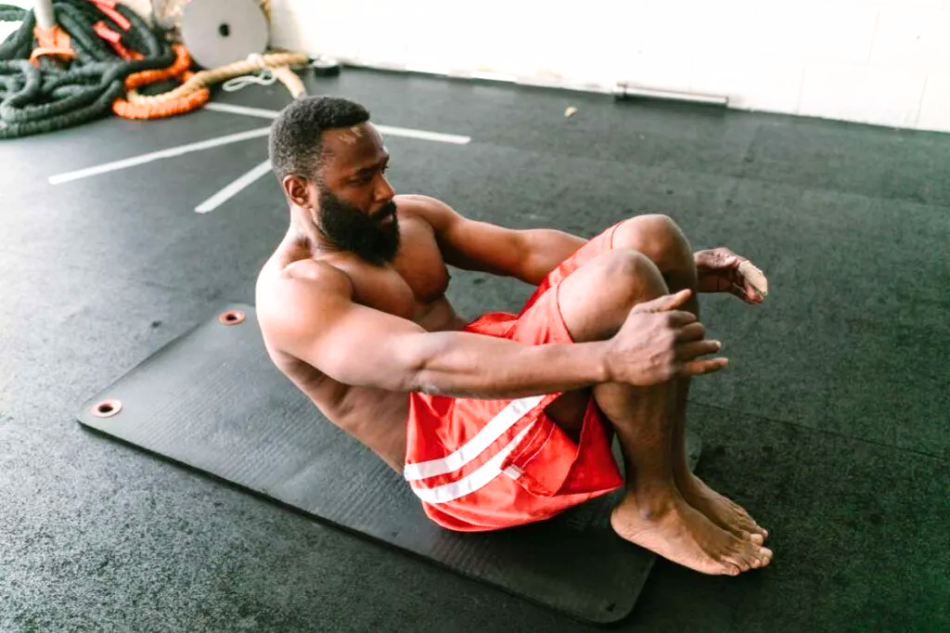
Herschel Walker’s training philosophy centers around high-volume calisthenics and bodyweight exercises.
He performs little to no weight training and believes calisthenics promote joint health and longevity. His routine consists of:
Push-Ups
- Does up to 3,500 push-ups per day
- Performs sets of 10-20 reps with brief rests until reaching the daily goal
- Finishes workouts with slow and partial reps to increase the difficulty
- Added resistance options: weighted vest, bands, elevation feet on box
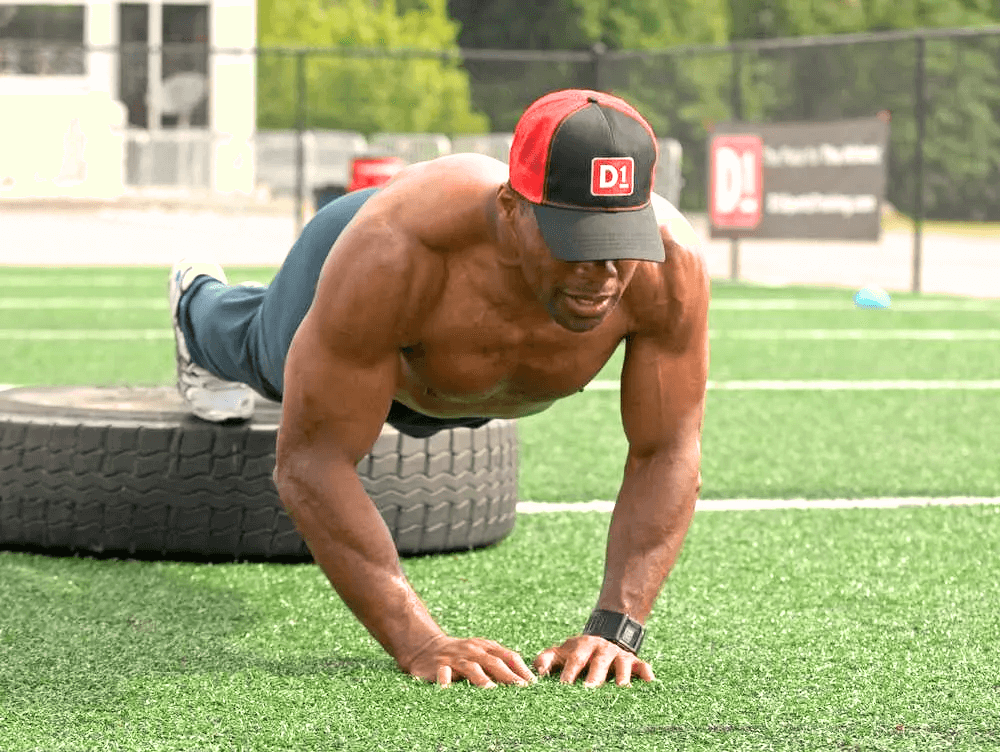
Sit-Ups
- Performs up to 3,000 sit-up reps per day
- Uses bent-leg, straight-leg, weighted, and decline sit-ups
- Completes sets of 10-20 reps until reaching the daily target
- Hits oblique with Russian twists and side bends
Pull-Ups
- Knocks out 1,500+ pull-up reps in his prime
- Rotates between shoulder-width, wide grip, neutral grip, and behind-the-neck
- Added resistance with a weight plate tied to the waist
Running
- Sprints hills for lower body strength and endurance
- Runs stairs and bleachers for added resistance
- Uses parachutes and weighted vests to increase the intensity
Martial Arts
- 5th degree black belt in taekwondo
- Practices punching and kicking combos to hone timing and explosiveness
- Credits martial arts for balance, flexibility, discipline
Additional Calisthenics
- Jumping jacks, burpees, lunges, squat thrusts
- Plyometric jumps for power
- Rope climbs, monkey bars, swimming
Diet Approach
- Follows intermittent fasting, eating just one meal per day
- Focuses diet on vegetables, fruits, legumes, bread
- Avoids red meat, eats limited protein sources
- Believes in listening to the body’s hunger signals
Recovery
- Sleeps just 5 hours per night
- Wakes early to complete calisthenics workout
The combination of extraordinary genetics, relentless work ethic, and a simple yet grueling training formula has allowed Walker to maintain elite fitness despite highly unorthodox nutrition.
His calisthenics approach enables full-body leanness, muscle endurance, and cardiovascular conditioning with minimal joint stress.